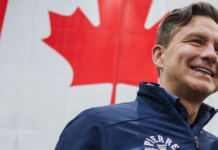BY: ANTHONY FUREY
It’s been clear for a while now what issues the major federal party leaders want to fight the campaign over. But are these the issues that now warrant Canadians’ attention?
Prime Minister Justin Trudeau would have the electorate believe the biggest concern is some sort of scary hidden agenda on the party of Conservative leader Andrew Scheer that relates to his historic views on same-sex marriage and abortion. That, and Trudeau continues to pile on the climate alarmism.
Meanwhile, Scheer wants Canadians to focus on Trudeau’s record, in particular, his abysmal four years of budgetary and foreign affairs blunders. And of course the Lavscam wreckage. When it comes to the positive sell, Scheer says “it’s time for you to get ahead”. This is clearly in reference to Canadians of all income brackets who feel their dollars aren’t going as far as they once did.
Then there is NDP leader Jagmeet Singh who, well, is just trying to cling on for dear life and not be pushed into fourth-party status by an advancing Elizabeth May whose Green Party is amazingly eating the NDP’s lunch. The two parties may be fighting over table scraps, but they seem to find them tasty morsels.
Is that it? Will there be any big picture national conversation to come in the weeks ahead? There will most certainly be curveballs – like how the Syrian refugee saga took centre stage in the middle of the 2015 campaign. Brace yourselves for almost anything.
Almost. That’s the key.
There are important issues that just won’t be discussed. This is odd in the case of some of the issues I have in mind, because they are ripe for the picking – policies that have either been in the feeder system of ideas for some time now or likely have the support of a majority of Canadians. Or, in some cases, both.
The most obvious example is immigration, which mainstream voices in media and academia have managed to turn into the third rail of Canadian politics.
Maxime Bernier told me the other week on my SiriusXM show that one reason he should be allowed into the debates is that he is the only leader calling for a decrease in overall immigration numbers and that polls show a majority of Canadians agree with him.
One way to responsibly bring this issue to the fore is to make clear what any honest person already knows – that what concerns Canadians of all walks of life is not so much immigration broadly speaking, but integration (people of all backgrounds getting along harmoniously in their communities under a shared national identity).
Canadians’ concerns about the volume of immigration may decrease if they feel they’re more able to discuss integration factors. This idea that’s taken hold that many Canadians harbour bigoted exclusionary views entirely based on race or ethnicity just needlessly defames our tolerant and welcoming nation.
There are other issues that will go almost ignored during the federal election. While Scheer will be right to bring up debt, there is a broader conversation we need to have about the size of government. There once was a time when people turned to their family or community associations as the first recourse to deal with their problems. Now we first turn to the government. Do we wish to continue down this undeniably socialist path?
There are also structural issues that, while politicians don’t need a mandate to enact, still deserve a public airing. Like the 11% premium that public servants make over their private sector counterparts. Is this fair? Should it be corrected? Aside from labour strife, devising a formula that corrects this wage gap for new hires shouldn’t be that hard to accomplish.
If we’re going to responsibly grapple with Canada’s problems though we first must be able to talk about them.
Former PM Kim Campbell is still teased for saying years ago that election campaigns are no time to discuss serious affairs.
I don’t blame her though.
Successive politicians keep proving her right.






















